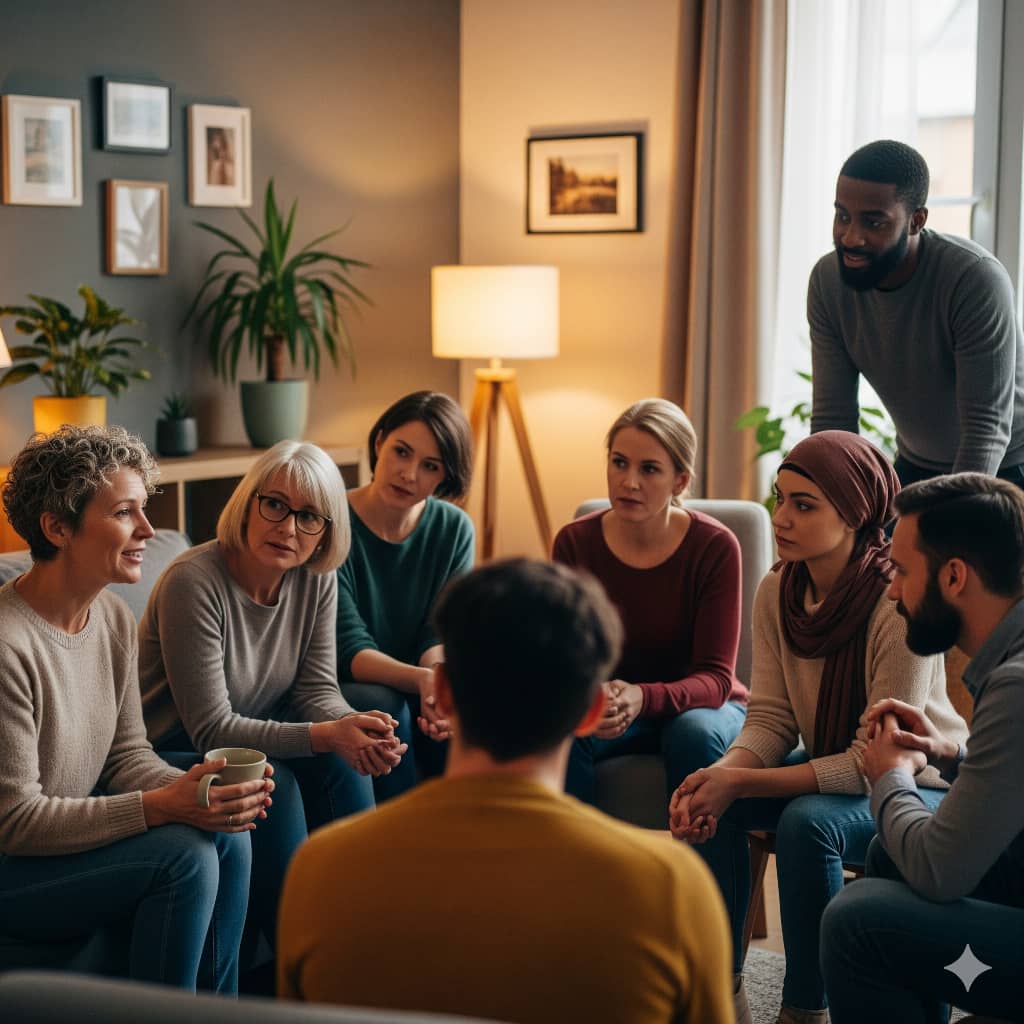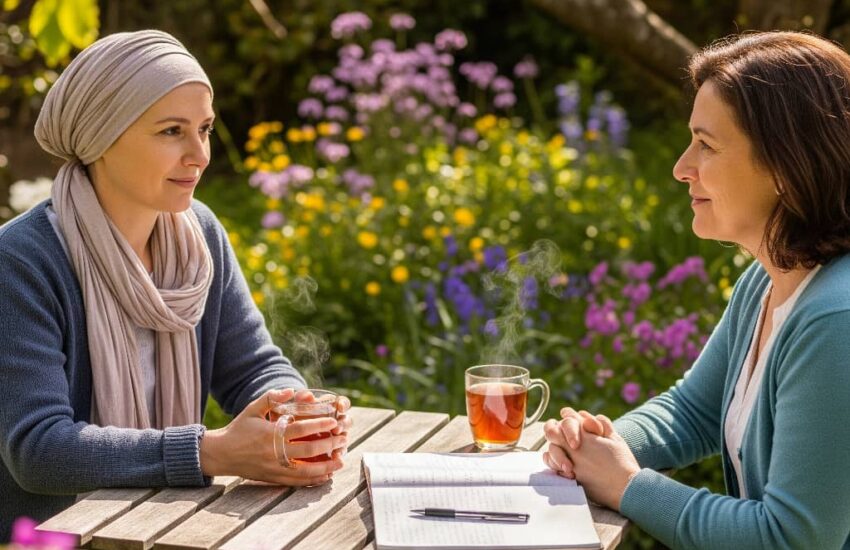When my aunt was diagnosed with breast cancer, we focused immediately on the physical aspects, surgery, chemotherapy, and radiation. A cancer diagnosis impacts more than just the body; it challenges mental and emotional well-being. Learn how to support mental health during treatment, recovery, and beyond. It wasn’t until she mentioned, almost in passing, that she’d been sitting in her parked car for twenty minutes because she couldn’t muster the energy to walk into the grocery store, that we realized we’d overlooked something crucial: her mental health. The fatigue wasn’t just physical; it was the weight of anxiety, the drain of depression, the invisible toll of facing mortality every single day. Cancer doesn’t just attack the body; it invades the mind and soul, and healing requires treating the whole person.
The emotional impact of cancer begins long before treatment does. The moment after diagnosis, time seems to fracture into “before” and “after.” Patients describe feeling like they’ve been thrust into a foreign country where they don’t speak the language, surrounded by medical terminology and statistics that feel both overwhelming and deeply personal. This psychological shock can trigger acute stress, anxiety, and even symptoms of PTSD. I remember my aunt recalling how she couldn’t concentrate on anything after her diagnosis; the world seemed to move in slow motion while her mind raced.
Treatment itself brings its own mental health challenges. Chemotherapy and radiation are physically grueling, but they also affect cognitive function, a phenomenon often called “chemo brain.” Patients describe struggling with memory lapses, difficulty focusing, and mental fog that can undermine their sense of competence and identity. For someone who prided herself on her sharpness, my aunt’s frustration with forgetting simple words was almost as hard as the nausea and fatigue.
The isolation of cancer treatment is profoundly damaging to mental health. Even with loving families and friends, many patients describe feeling utterly alone, separated by the uniqueness of their experience. Well-meaning visitors sometimes refrain from visiting out of fear of intruding or saying something inappropriate. Others offer platitudes like “stay positive” that can feel dismissive of very real fears. Social connections often shrink at the very time they’re most needed, leaving patients to suffer in isolation.

Financial toxicity, the overwhelming cost of treatment, adds another layer of stress. My aunt worried constantly about how her illness was affecting her family’s finances, sometimes even questioning whether she should continue treatment because of the burden it created. This anxiety isn’t just distracting; it can actually impact treatment outcomes as stress hormones affect the body’s ability to heal.
Supporting mental health during cancer requires intentional strategies. Therapy geared explicitly toward cancer patients can provide tools to manage anxiety and depression. Support groups connect patients with others who truly understand their experience, reducing isolation. Some hospitals now offer integrative medicine programs that include mindfulness, meditation, and yoga alongside traditional treatment, not as alternatives to medicine, but as complements that address emotional and spiritual pain.
Small moments of normalcy and joy become therapeutic acts. When my aunt felt well enough, we’d sit in the garden without talking about cancer. We’d watch old movies she loved, eat meals that appealed to her changing tastes, and listen to music that brought her peace. These respites didn’t cure her cancer, but they helped her remember that life still held beauty and connection amidst the pain.
Communication is both a challenge and a necessity. Patients often hesitate to share their deepest fears about death, suffering, or being a burden, wanting to protect their loved ones. Families, in turn, may avoid difficult conversations to maintain hope. But unspoken fears often grow in the dark. When we finally created a safe space for my aunt to express her worries without judgment, she said it felt like setting down a weight she’d been carrying alone.
The mental health impact doesn’t end when treatment does. Survivors often describe “scanxiety” before follow-up appointments, fear of recurrence, and difficulty adjusting to life after cancer. The body may heal, but the mind remembers. My aunt’s oncologist wisely included mental health check-ins as part of her long-term follow-up care, recognizing that healing continues long after treatment ends.
Perhaps the most important lesson we learned was that mental health support isn’t a luxury during cancer treatment; it’s a necessity. Just as we wouldn’t skip chemotherapy to treat the physical disease, we shouldn’t neglect psychological care for the emotional trauma. Supporting mental health doesn’t mean being perpetually positive; it means making space for the full range of human emotions, fear, anger, sadness, and even moments of joy that accompany a cancer journey.
Cancer may be a physical disease, but it touches every part of a person’s being. True healing requires treating not just the body, but also the mind and spirit, which endure long after treatment ends.
References
Fard, M., & Fard, F. (2024, February 25). The impact of cancer on mental health and the importance of supportive services. *International Journal of Cancer Care*. https://pmc.ncbi.nlm.nih.gov/articles/PMC11368479/
Hunter Valley Oncology. (2023, March 26). Psychological impact of cancer. https://huntervalleyoncology.com.au/cancer-treatment/psychological-impact-of-cancer/
Boston Medical Center. (n.d.). Taking care of your mental health when you have cancer. https://www.bmc.org/cancer-center-patient-and-caregiver-resources/taking-care-your-mental-health-when-you-have-cancer
Mitchell, A.J., Chan, M., Bhatti, H., et al. (2022, December 31). Mental health needs in cancer – a call for change. *Psycho-Oncology*. https://pmc.ncbi.nlm.nih.gov/articles/PMC10540791/
American Cancer Society. (2020, August 30). Psychosocial support options for people with cancer. https://www.cancer.org/cancer/survivorship/coping/understanding-psychosocial-support-services.html

